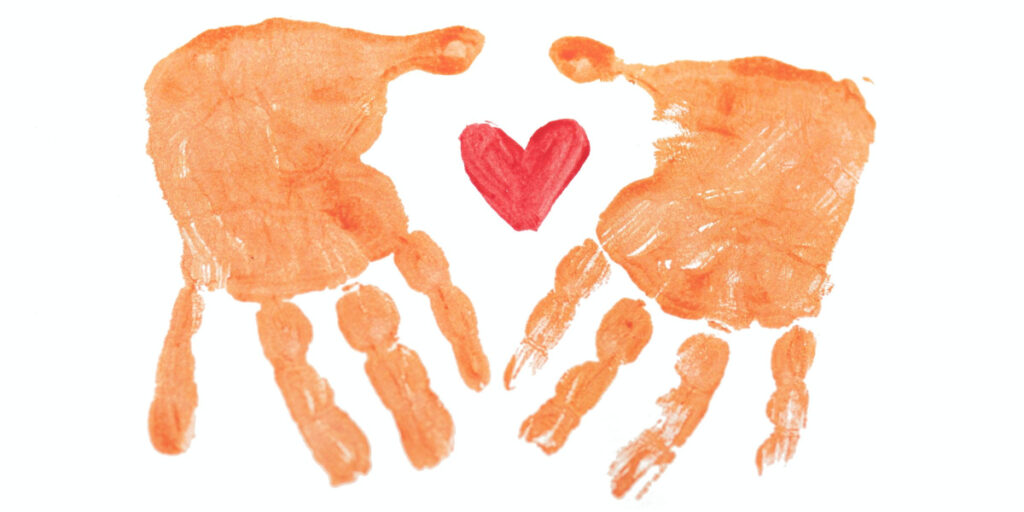We may earn money or products from the companies mentioned in this post.
Secrets of Happiness
As we move through the days of our lives, many of us are looking for moments of happiness as well as the secrets of long-term happiness. Happiness, in my opinion, is a priority and a life goal for most of humanity.
In a society that often prioritizes instant gratification, it’s essential to understand the elements that contribute to genuine and long-term happiness. In this post, we will explore habits and practices that lead to enduring contentment and fulfillment. These secrets have the power to transform your perspective and ability to create a lifetime of happiness. Get ready to uncover the magic that lies within you.
Creating Meaningful Connections
Nurturing relationships is a vital aspect of creating meaningful connections in your life. It involves, of course, investing time and effort. Strong bonds with people, whether it’s with friends, family, or romantic partners requires communication, trust, and understanding.
Take the time to listen actively, show empathy, and be there for your loved ones. I’m sure many can relate to having a spouse or a child talk to you while you are in the midst of something else. When possible–and it’s often possible–stop what you are doing for a few minutes and pay attention. It really helps the person talking feel valued!
By making an effort to connect on a deeper level, you can foster meaningful relationships. And meaningful relationships bring joy and fulfillment to your life.

These relationships will also be of great benefit during life’s inevitable hard times. So be sure that you offer the support to others as you hope to be supported in your own time of need. Sometimes this will be inconvenient. Do it anyway.
Cultivating Empathy and Compassion
Empathy and compassion are two qualities that are essential to emotionally healthy living. Not surprisingly, they significantly impact your relationships and overall happiness. Really, they are just a common sense perspective– putting yourself in another person’s shoes to try to see things from their point of view and caring about their situation are somewhat obvious things to do. Especially when it comes to problem-solving. And being able to solve problems in a relationship definitely contributes to long-term happiness!
Empathy and compassion are useful, as just described, in relationships. But, importantly, they also contribute to the depth and quality of your relationships–which you may recall is one of the secrets of lifelong happiness.
Empathy and compassion can be cultivated if they do not come to you naturally. Like anything else, it will require a bit of effort at first. But so worth it!
Practicing Gratitude
Keeping a gratitude journal is a simple yet powerful practice that can amplify your happiness and overall well-being. Take a few minutes at the start or end each day to reflect on the things you are grateful for. Big or small. A common theme in my own journal is about things I see from my kitchen window–birds, clouds, trees etc…
Write down 3-5 (or more) things in your journal and take a moment to feel the gratitude. This simple practice of acknowledging and expressing gratitude for the good that is in your life can shift your focus towards all that is good already. This positive mindset is a big component of happiness.
Expressing Appreciation
I’m sure we have all had the experience of holding a door open for someone who said thanks as well as for someone who did not. Now, there could be reasons why the one person failed to acknowledge your kind act, and kindness shouldn’t be done for reward….but the point here is that it feels nice when people express appreciation, doesn’t it?
Expressing appreciation is essentially gratitude in motion, on the go. Something we can do throughout the day. It’s a wonderful thing to offer to strangers, who, say hold the door for you–ha! But more importantly, it’s a way to enrich your personal and most vital relationships. People love to be appreciated! And, honestly, it feels good to boost loved ones in this way.
By regularly looking for things to express appreciation for and then doing so, you not only cultivate a positive mindset but also create a ripple effect of kindness and happiness in the lives of those around you.
Finding Purpose
Finding a purpose or your purpose in life, however you choose to see it, is another contributor to long-term happiness. What’s important to you? What are you passionate about? How do you want to give back to the world?
With a bit of self-reflection, you can determine your purpose. In my opinion, a purpose can change and evolve as your life changes and evolves. Moreover a purpose doesn’t have to be some grand thing. It can be something simple like learn something new every day.
When you’ve settled on your purpose, make a conscious effort to align your actions and goals with it. Living with a sense of purpose gives meaning to your days and contributes to satisfaction and happiness.

Goal setting can be an important component of purposeful living. . Goals provide a framework for your days and keep you honed in on the actions you need to take to get where you want to be. Goals can also serve as motivation for taking action.
If happiness is your priority, be sure to set goals that will contribute to that overall aim. What is it that would make you happy in different areas of your life, such as career, relationships, and personal growth? Set specific, measurable, attainable, relevant, and time-bound (SMART) goals that resonate with your answers and achieving the goals will be a big part of your happiness in life.
Cultivating Healthy Habits
Life is busy for most of us. And in that busy-ness, we often neglect self-care. But, as the saying goes:
You can’t pour from an empty cup.
Unknown
Prioritizing self-care is essential for health and happiness. Taking care of your physical, mental, and emotional well-being is crucial for your overall happiness and resilience.

Exercise has obvious physical benefits, but it’s also for good mental health. Exercise releases endorphins, the body’s natural feel-good hormones, which can boost your mood and reduce stress. If you can, find a form of exercise that you enjoy! Mountain biking, walking or jogging can get you outdoors. Yoga, or Pilates are tried and true forms of exercise. Playing a team sport could provide good social interactions in addition to the exercise.
The choices are endless.
Traditional wisdom says to try for at least 30 minutes of moderate exercise at least three days per week. That said, another approach is to simply increase activity throughout your day. Going shopping? Park far away and walk in. Take the stairs vs the escalator. On a call at home? Walk around the house and talk. It’s called NEAT exercise and it really can be enough for basic good health.
Whatever approach you choose, exercise and physical activity is an important contributor to health and happiness.
Mental health is, thankfully, much more acceptable to talk about these days. This is in large part thanks to famous people like Simone Biles and Michael Phelps discussing their own situations. Anxiety in its various forms seems to be all too common.
Self-care, then, involves attending to your own mental health. This will mean something different for each individual. But a general suggestion for managing stress and anxiety is a Mindfulness practice.
Mindfulness is a powerful tool that can help you respond to stressful situations with more clarity and composure. Mindfulness practices include things like breathing exercises (see below) or simply being in the moment.
Journaling, as mentioned earlier, is another DIY tool that is quite useful for taking care of your mental health. I carry a variety of journals in my Etsy shop–if you want to give it a try!
According to WebMD, journaling has all of these benefits:
Benefits of Journaling
Whether you’re dealing with stress from school, burnout from work, an illness, or anxiety, journaling can help in many ways:
It can reduce your anxiety. Journaling about your feelings is linked to decreased mental distress. In a study, researchers found that those with various medical conditions and anxiety who wrote online for 15 minutes three days a week over a 12-week period had increased feelings of well-being and fewer depressive symptoms after one month. Their mental well-being continued to improve during the 12 weeks of journaling.
It helps with brooding. Writing about an emotional event can help you break away from the nonstop cycle of obsessively thinking and brooding over what happened — but the timing matters. Some studies show that writing about a traumatic event immediately after it happens may actually make you feel worse.
It creates awareness. Writing down your feelings about a difficult situation can help you understand it better. The act of putting an experience into words and structure allows you to form new perceptions about events.
It regulates emotions. Brain scans of people who wrote about their feelings showed that they were able to control their emotions better than those who wrote about a neutral experience. This study also found that writing about feelings in an abstract way was more calming than writing vividly.
It encourages opening up. Writing privately about a stressful event could encourage some to reach out for social support. This can help with emotional healing.
WebMD
The final aspect of self-care we will discuss is that of managing your emotions–which is closely related to mental health. A mindfulness practice and journaling can help with developing your emotional stability and intelligence.

With a little attention you will learn how to identify and express or dissipate/release negative emotions and foster and amplify positive emotions. There will be lapses and slip ups, to be sure! But in the end, your efforts end, your efforts will result in more happiness in your life.
Bonus secret: Not specifically mentioned above, but certainly something that I consider self-care and a mainstay of enjoying long-term happiness is this: Find what brings you joy.
This can mean big things related to goals or grand aspirations. But it can also easily be applied daily for small things. And it’s enhanced by mindfulness and being present in the moment.
An example from my life: I have bird feeders at my window and so birds are fluttering about all day in and around the feeders. Much of the time it’s just a pleasant background. But if I stop for a few moments and watch the activity, I experience a joyful moment marveling at their stick legs and agility and beauty.
Laughter is another easy way to have a moment of joy. Adorable animal videos are quick and easy. But there are lots of things to chuckle about if you keep your eyes open.
Where can you find joy today?
Embracing Change
Change is an inevitable part of life, and accepting that fact is vital to finding happiness and fulfillment. However, such acceptance is not always easy!
As a strategy for happiness, coming to terms with the impermanence of Life and aspects of life is a requirement. Otherwise you will find yourself resisting so much and so often. And resistance to the daily flow of life is an agitation.
Everyone will really have to find their own way to accept and allow (I want to clarify that this type of acceptance doesn’t apply to social injustice or bad things in your life. It’s more about releasing the anguish while working for better). I personally find mantras helpful as a way to stop the inner complaining. I describe one such mantra here.
Seeing change as an opportunity for growth is one way to frame things more positively. Personal growth and betterment are things most of us want for ourselves if we’re honest. Even if we might not welcome it initially.
Take a little time at the end of each day or each week to think about the things in your life that you might be resisting and consider if there are things you need to work on yourself or actions you can take “out there” and then allow yourself to let go of the struggle.
Finding Work-Life Balance
You know the saying: All work and no play…
It’s common sense that too much work and not enough time away is a recipe for stress and unhappiness. As with most things, there are always exceptions. If you really LOVE your work, it might just double as restorative down time.
That’s not the case for most people, however.
For most people it’s necessary to set boundaries to maintain a healthy work-life balance. Having clearly defined limits and separation between your personal and professional life is important. Fortunately, in my opinion, people are more aware than they have been in the past about this need to not give away your life for money or for an employer for whom you are expendable. Good employers do not expect you to do this.
Having this balance contributes a lot of overall happiness.

Managing Time Effectively
Being a good time manager can be a factor in achieving work-life balance. A lot depends on your work. But, for example, if you have a set of tasks that need doing before you can leave for the day, but you are unorganized and waste time on trivial things, you may prolong your work day. Which will not make your happy!
Home life also requires that certain necessary tasks get done. Not being organized enough with your time to get them done can culminate in stress when time runs out. So managing your time effectively contributes to a life of happiness by reducing stress and creating more time for the activities and relationships that bring you joy.
Connecting to Something Bigger
Perhaps the biggest factor in experiencing a happy life is having the sense of being part of something bigger than your individual self. For many this is God or a Higher Being. But it can be anything: humanity, nature, a specific cause or purpose, a family, a community….
Related to that sense of connection, you are likely to find happiness in contributing or giving back to it. Maybe you volunteer for a cause you believe in, or you support a local community initiative. Or maybe you contribute to a global movement. You might routinely perform Random Acts of Kindness.
You can become a socially conscious shopper, make donations, sign petitions, advocate, protest, shop locally, plant a native garden….
However you decide to honor your connection, giving to something bigger can bring incredible fulfillment and meaning to your life. Happiness. Be open to the opportunities. Use your skills and passions for the betterment of others.
These lyrics from of my favorite artists kinda captures the essence of the feeling I get when I contribute to the collective good:
Gay and straight, rich and poor
Peter Mayer, Everybody In
Whole and broken, open up that door
The more we are, the greater we become
And after all, we all are one
Bring in the people but don’t stop there
Bring in the fish in the sea and the birds in the air
Bring in the rivers wide and the mountains tall
We go together or not at all.

If you enjoyed this post, you may like these:
In Conclusion
Living a happy life is a worthwhile goal for all of us. There are habits and practices that we can learn and adopt to increase the likelihood of experiencing happiness.
Incorporating these secrets of happiness into your life can help you create what you seek. Meaningful relationships, self-care, connection, balance….it’s all here. Start implementing these secrets of long-term happiness today. Notice how your happiness quotient grows.
FAQ: Secrets of Happiness
Forming meaningful connections with friends, family, and romantic partners plays a crucial role in achieving long-term happiness. Investing time and effort into these relationships through communication, trust, understanding, and active listening enhances joy and fulfillment in life. Such connections not only bring happiness during good times but also provide essential support during challenging moments, fostering a supportive network that enhances one’s emotional well-being.
Empathy and compassion are foundational for emotionally healthy living and significantly improve relationships and overall happiness. By understanding and caring for others’ perspectives and situations, these qualities enrich the depth and quality of relationships, which are key to lifelong happiness. Additionally, practicing gratitude through simple acts like maintaining a gratitude journal focuses attention on the positive aspects of life, cultivating a mindset that appreciates the present moment and enhances well-being.
Identifying and pursuing a purpose in life is a powerful driver of long-term happiness. This process involves reflecting on personal values, passions, and aspirations to determine a meaningful direction for one’s actions and goals. Setting specific, measurable, attainable, relevant, and time-bound (SMART) goals aligned with this purpose provides motivation and a sense of achievement as milestones are reached. Living with a sense of purpose and actively working towards goals infuses daily life with meaning and satisfaction, contributing significantly to overall happiness.












